1. Nickelback
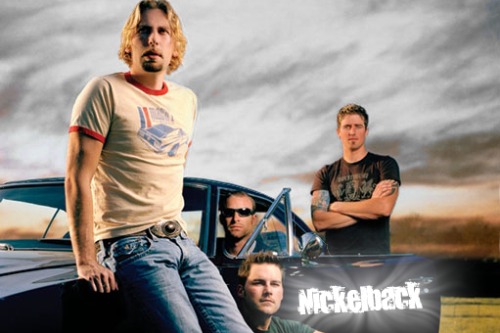
Nickelback has long been the punching bag of rock critics and casual listeners alike. Their formulaic approach to post-grunge hits like “How You Remind Me” made them both wildly successful and widely ridiculed. The band’s music is catchy enough to dominate radio waves, yet somehow it inspires intense online hatred. It’s almost like everyone has an opinion about Nickelback, whether positive or negative.
Despite all the mockery, Nickelback still tours to packed arenas around the world. Their ability to sell millions of albums proves that disdain doesn’t always mean failure. Some argue that the criticism stems more from envy than actual musical shortcomings. Either way, the band’s reputation as “America’s most hated rock band” has cemented itself in pop culture.
2. Limp Bizkit
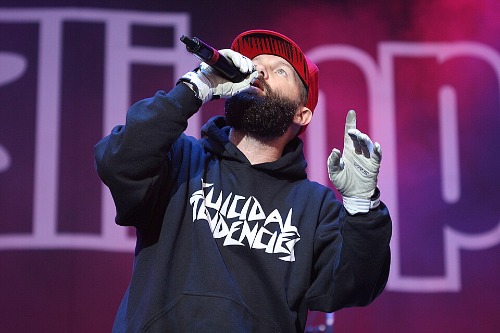
Limp Bizkit became a symbol of nu-metal excess in the late ’90s and early 2000s. Frontman Fred Durst’s brash persona and the band’s aggressive mix of rap and rock earned them critics by the dozen. Songs like “Break Stuff” epitomized teenage angst but also drew accusations of promoting rebellion without substance. To many, they were everything wrong with mainstream rock at the time.
Still, Limp Bizkit tapped into a devoted fan base that craved high-energy, rebellious music. Their live shows were chaotic but magnetic, proving their entertainment value. Despite cultural backlash, they sold millions of records and became festival mainstays. Love them or hate them, they left an undeniable mark on turn-of-the-century rock.
3. Creed
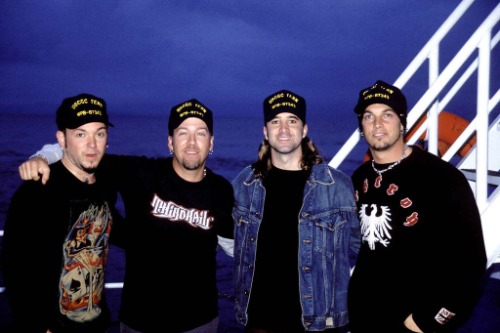
Creed emerged from the post-grunge wave with soaring ballads and philosophical lyrics. Scott Stapp’s distinctive voice polarized listeners, inspiring both adoration and ridicule. Critics often called them overly dramatic or self-serious, comparing them unfavorably to Pearl Jam and Soundgarden. Fans, however, found solace in their spiritual themes and anthem-like choruses.
Even with the criticism, Creed achieved massive commercial success. “With Arms Wide Open” won a Grammy and remains a nostalgic staple. Their music has been labeled “dad rock” in modern circles, which only fuels the disdain. Yet their influence on early-2000s rock is undeniable.
4. Coldplay

Coldplay’s melodic, introspective rock became a lightning rod for snark. Some listeners dismissed them as too soft or emotionally manipulative, particularly with albums like “Parachutes.” Chris Martin’s earnest lyrics and the band’s stadium-friendly sound turned them into an easy target. Critics sometimes accused them of being safe, formulaic, or emotionally calculated.
Despite the jokes, Coldplay consistently sells out arenas worldwide. Their ability to evolve sonically—from melancholic piano ballads to vibrant pop-infused rock—is impressive. While detractors mock their ubiquity, few can deny their staying power. They remain a beloved, if polarizing, force in modern rock.
5. The Jonas Brothers
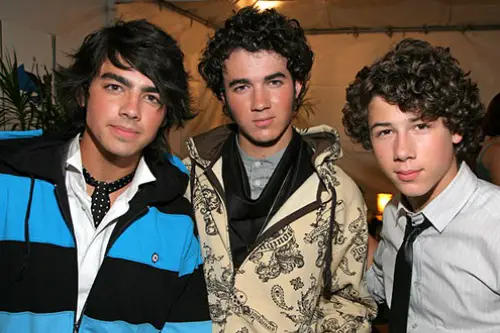
Before the Disney makeover, the Jonas Brothers were a pop-rock band with undeniable teen appeal. Their early music combined catchy hooks with clean-cut vibes, which led to some serious adult skepticism. Critics often dismissed them as manufactured or insipid, seeing them as emblematic of music industry overproduction. Yet millions of teenagers adored them, and their fame only grew.
The band has since evolved and embraced more mature sounds, but the snark hasn’t gone away. Internet memes and critiques still cast them as a “safe” choice in rock and pop. Despite the ridicule, they’ve maintained relevance, proving that teen-targeted rock can mature gracefully. Their story is as much about resilience as it is about catchy tunes.
6. Linkin Park

Linkin Park’s nu-metal style was groundbreaking yet controversial. Their blend of rap, rock, and electronic elements polarized critics, who often dismissed them as a trend rather than artists. Tracks like “In the End” became cultural touchstones while also inviting ridicule from purists. Many people either loved their energy or despised their emotional intensity.
However, Linkin Park’s influence on early-2000s music is undeniable. Their experimentation helped shape the nu-metal genre, inspiring countless bands. Even years after Chester Bennington’s passing, fans celebrate their legacy with devotion. Criticism never stopped their music from resonating with millions.
7. Smash Mouth
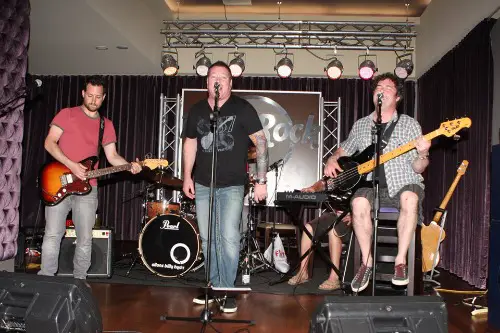
Smash Mouth became both beloved and ridiculed thanks to their hit “All Star.” The song’s massive presence in movies, commercials, and memes turned it into a cultural juggernaut. But the overexposure also led many to roll their eyes whenever those opening notes played. For some, Smash Mouth embodied cheesy late-’90s pop-rock excess.
Still, the band embraced their role as meme legends, leaning into the joke rather than fighting it. Their upbeat, sunny sound kept them popular at festivals and nostalgic events. While critics often dismissed them as lightweight, their songs remain instantly recognizable. Love them or hate them, Smash Mouth carved out an unforgettable place in pop culture.
8. Evanescence
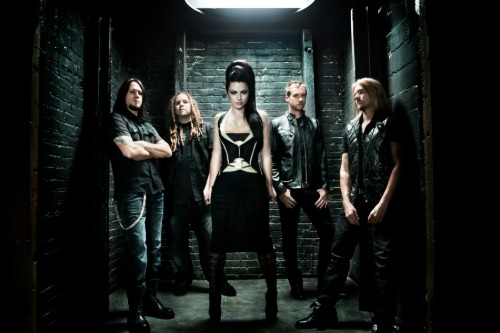
Evanescence brought gothic theatrics to the mainstream with Amy Lee’s operatic vocals. Critics often labeled them melodramatic or overproduced, particularly after the massive success of “Fallen.” Their mix of metal and symphonic elements didn’t always resonate with purists, who considered them a “scene” band. Still, their haunting melodies and cinematic approach captivated a huge audience.
The band has maintained a devoted fanbase despite the criticism. Their music taps into a sense of drama and catharsis that few mainstream rock bands embrace. Albums like “The Open Door” showcase their range and ambition. Evanescence may divide opinion, but they’ve earned a permanent spot in rock history.
9. Imagine Dragons

Imagine Dragons’ arena-ready sound often draws scorn from rock critics. Songs like “Radioactive” and “Believer” dominate the charts but also spark debates about authenticity. Their polished, anthemic style can feel formulaic to those craving grit or rawness. Many people love to hate their ubiquity in pop-rock playlists.
Nonetheless, their commercial success is impossible to ignore. They blend electronic and rock elements in a way that resonates worldwide. Critics might mock their catchy hooks, but fans keep streaming their music in record numbers. Imagine Dragons exemplifies how modern rock can thrive even under intense scrutiny.
10. Maroon 5
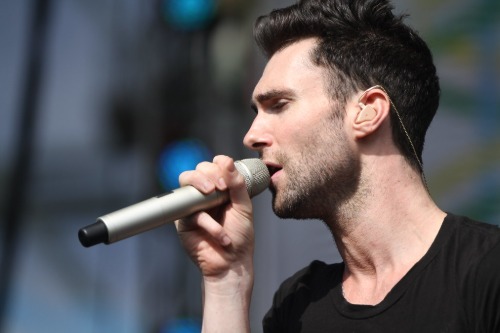
While mostly a pop band, Maroon 5’s early rock leanings earned them both fans and critics. Adam Levine’s falsetto and catchy guitar riffs initially bridged pop and rock sensibilities. Critics, however, often dismiss the band’s later, more pop-heavy work as formulaic. Their early albums, though, show why they were once seen as serious pop-rock contenders.
The band’s longevity speaks to their adaptability. They’ve weathered decades of changing musical tastes and still release chart-topping hits. Hate follows them, but so does devotion. Maroon 5 proves that commercial appeal and artistic criticism can coexist uneasily.
11. Green Day

Green Day revolutionized punk for mainstream audiences with “Dookie” and beyond. Yet their very success drew ire from purists who claimed they watered down punk for commercial gain. Albums like “American Idiot” challenged that notion, blending political commentary with punk energy. The band has faced waves of criticism for “selling out” while remaining influential.
Despite the mixed reception, Green Day continues to sell out tours worldwide. Their politically charged rock keeps them culturally relevant decades into their career. Critics may still snicker at their pop sensibilities, but their impact is undeniable. Few bands balance punk roots with mainstream success as effectively.
12. Fall Out Boy

Fall Out Boy’s emo-pop-rock style in the mid-2000s made them targets for snark. Songs like “Sugar, We’re Goin Down” were infectious, yet critics often accused them of melodrama and overproduction. Their lyrics sometimes skirted between clever and overwrought, earning both praise and mockery. Fans, however, embraced their confessional style wholeheartedly.
The band has demonstrated impressive resilience, reinventing themselves over the years. Albums like “Save Rock and Roll” show that they can evolve without losing identity. Fall Out Boy’s combination of theatricality and punk influence keeps them polarizing. People love to critique them, yet their popularity persists.
13. Papa Roach
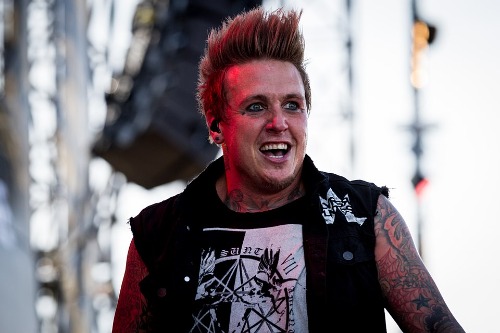
Papa Roach’s nu-metal era, particularly with “Infest,” sparked plenty of critical derision. Their aggressive sound and raw lyrics were polarizing in a time dominated by more “refined” rock bands. Critics often called them angry or formulaic, focusing on the angst in their songs. Fans, however, connected with the emotional intensity and rebellious energy.
The band continues to release music and tour decades later. Their persistence in the face of criticism speaks to a committed fanbase. Papa Roach remains a reference point for early-2000s nu-metal culture. Love or hate them, their impact on rock’s crossover with metal is significant.
14. My Chemical Romance

My Chemical Romance became synonymous with the mid-2000s emo movement. Critics often dismissed them as theatrical or overly dramatic, especially around albums like “The Black Parade.” Yet their storytelling and concept albums created a passionate, dedicated fanbase. The band’s aesthetic and sound polarized mainstream audiences as much as it inspired loyalty.
Even years after their initial split, MCR remains a cultural touchstone. Reunion tours and anniversary events demonstrate that affection outweighs ridicule. Their influence on emo and alternative rock continues to ripple through modern music. My Chemical Romance proves that theatricality can be both loved and hated simultaneously.
15. Weezer

Weezer has enjoyed long-lasting fame, but their inconsistent albums sparked strong opinions. Hits like “Buddy Holly” and “Say It Ain’t So” are iconic, but later releases drew sharp criticism for feeling stale. Critics often target Rivers Cuomo’s sometimes awkward lyrics and the band’s fluctuating sound. Fans, however, appreciate their quirky charm and catchy hooks.
Despite being a target of ridicule, Weezer’s place in rock history is secure. They blend geeky sensibilities with power-pop energy, creating a unique identity. Their ability to endure criticism and still release beloved songs is remarkable. Weezer exemplifies a band that can be both mocked and adored at the same time.
This post 15 Rock Bands That America Loved to Hate—And Still Does was first published on American Charm.


